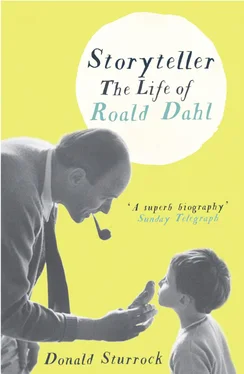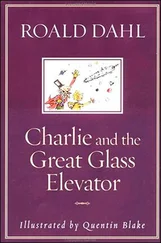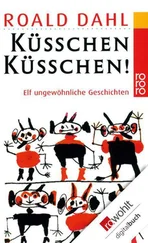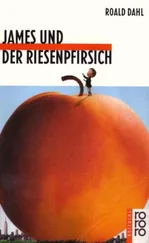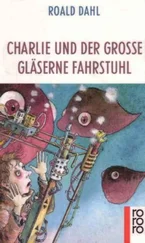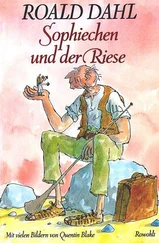Dahl seldom dwelt on the traumatic early years of his childhood, and he generally made light of any connection between his fiction and his own life, yet the parallels between the two are intriguing. His fictional childhood bereavements, for example, are never maudlin. His child heroes or heroines always follow the positive pattern that Roald and his own sisters established after their father’s death. Sophie in The BFG has lived in an orphanage almost as long as she can remember, but does not dwell on what might have been. “Oh you poor little scrumplet!” cries the Big Friendly Giant, when he discovers that Sophie has no father or mother. “Is you not missing them very badly?” “Not really,” replies Sophie, “because I never knew them.” 2This pragmatism was characteristic of Dahl himself. Perhaps because he never really knew his father, he does not seem unduly to have felt his absence.
This attitude contributed to an unsentimental, frequently subversive view of families, which was reflected strongly in his children’s fiction. The child always stands at the centre of things. Survival is often his or her main motivation, and enemies are as likely to come from within the family as from outside it.
Sometimes, the enemy is parents themselves — particularly if they are dreary or unimaginative. Occasionally, a good one appears — the “sparky” father figure in Danny the Champion of the World is probably the best example — but more often they feature as a negative force that the child must learn to endure, evade or subvert. To achieve this, the young hero must usually find an unexpected friend, who appreciates that child’s special qualities and allows them to bloom. Charlie Bucket’s soulmate in Charlie and the Chocolate Factory is neither mother, father, sibling nor schoolmate, but his quirky Grandpa Joe, and ultimately the great chocolate maker Willy Wonka himself. The orphaned narrator of The Witches has a similar relationship with his eccentric Norwegian grandmother. James in James and the Giant Peach finds salvation in nonhuman friends, a group of outsize and wacky bugs, while Sophie in The BFG finds her affinity in the person of a lumbering, good-natured giant. Sophie and James are both orphans and so have no parents to reject. Matilda Wormwood, on the other hand, the child heroine of Dahl’s last major book, Matilda, has parents from hell — conniving, vulgar imbeciles who ignore their daughter and try to crush her love of reading. They are comic caricatures, but also capable of brutal insensitivity, being “so gormless and so wrapped up in their silly little lives” that Dahl doubts they would have noticed had their daughter “crawled into the house with a broken leg”. 3Matilda’s exceptional connection with her teacher Miss Honey is the emotional core of the story, and in the end, she chooses to desert her dysfunctional family to live with her new adult friend — an option many children may have dreamed of in sulkier moments. In each case, the love Dahl celebrates is not the traditional one between parent and child, but a close friendship established by the child, on its own terms, and in an unfamiliar context.
In many instances his books are a kind of imaginative survival manual for children about how to deal with the adult world around them. They offer the vision of an existence freed from parental controls, a world full of imagination and pleasure, where everything is possible. Escapist perhaps, but not sentimental. For Dahl always remembered that children were programmed to be survivors. Several times in conversation he described them as “uncivilized creatures”, engaged in a battle with a world of adults who were constantly telling them what to do. Once, in a radio interview, he even argued that most children unconsciously view their parents as “the enemy” and that there was “a very fine line between loving your parents deeply and resenting them”. 4It was a perception he developed early and one that remained with him until he died. It gave him the confidence to claim, at the end of his life, that he spoke for young people, that he was their advocate in a world that largely ignored them. Indeed, by then he often claimed that he preferred the company of children to that of adults.
Roald himself was blessed with an extraordinarily strong and influential Norwegian mother, who single-handedly raised him and did much to shape his attitudes. He described her as “undoubtedly the primary influence on my own life”, singling out her “crystal clear intellect” and her “deep interest in almost everything under the sun” as two of the qualities he admired most in her. He acknowledged her as the source for his own interest in horticulture, cooking, wine, paintings, furniture and animals. She was the “materfamilias”, his constant reference point and guide. 5“She devoted herself entirely to the children and the home. She had no social life of her own,” recalled her daughter Alfhild, adding that her mother “was very like Roald … a bit secret, a bit private”. 6Sofie Magdalene was undoubtedly a remarkable woman: brave, stubborn, eccentric and determined, a survivor who was able to face almost any difficulty or disaster with equanimity. “Practical and fearless,” 7was how her youngest daughter described her. “Dauntless” 8was the adjective Roald used in Boy, while pointing out that she was always the only member of the family not to get seasick on the two-day ferry crossing from Newcastle to Norway. He admired her toughness, her lack of sentiment, her buccaneering spirit and her laissez-faire attitude toward her offspring. His description of her, a non-swimmer, in a small motorboat, guiding seven children, all without lifebelts, through mountainous waves in the open Norwegian seas was typical. “That was when my mother enjoyed herself most,” he wrote, revelling in behaviour most parents would consider reckless in the extreme. “There were times, I promise you, when the waves were so high that as we slid down into a trough the whole world disappeared from sight. Then up and up the boat would climb, standing almost vertically on its tail, until we reached the crest of the next wave, and then it was like being on the top of a foaming mountain.” Dahl’s description may be exaggerated, childish, but the implied metaphor is telling of his admiration for her as a parent. “It requires great skill to handle a small boat in seas like these,” he concluded, “but my mother knew exactly how to do it and we were never afraid. We loved every minute of it.” 9
If his mother was the principal source of Roald’s sense of adventure, she may unwittingly have been the source of some of his talents as a writer as well. For according to Roald’s niece Bryony, Sofie Magdalene was also a born STORYTELLER, and sometimes a gossip too, who enjoyed “weaving fantasies about members of the family, interspersed with downright lies”. Bryony here hints at the division in Sofie Magdalene’s attitude toward her blood children and her stepchildren, to whom one suspects she was always dutiful but less loving. They were usually the victims of her more malicious stories. “She used to have dreams about members of the family and say terrible things about what was going to happen to them,” remembered Bryony, “and she loved to spread foul rumours about.” It seems likely she was the source for the story of Marie Beaurin-Gressier’s abortion and she once put it about the village that her stepson Louis’s wife Meriel (Bryony’s mother) was starving her husband. In hefty old age, confined to a wheelchair and dressed in black, Sofie talked less, but could still petrify her grandchildren and stepgrandchildren. “Witchy”, “terrifying” and “like a spider” were some of the many descriptions of her. But she was not the only fabulist in the family. Alfhild and Roald both quickly honed their skills in that department, under the tutelage of their half sister Ellen, who also enjoyed an exaggerated yarn. Nevertheless, Sofie Magdalene was in a different league. “She was the real STORYTELLER,” Bryony recalled with a wistful chuckle. “I reckon Roald got it all from her.” 10And one of the first and most enduring legends she created for her children was about their father.
Читать дальше
